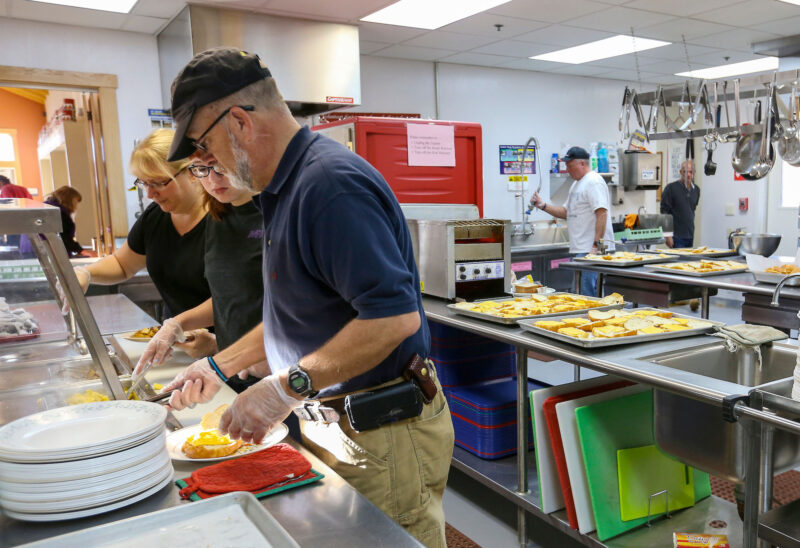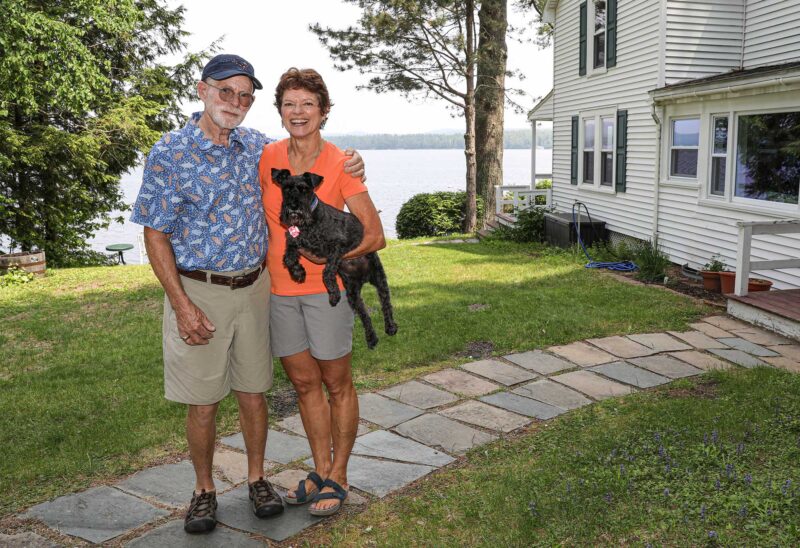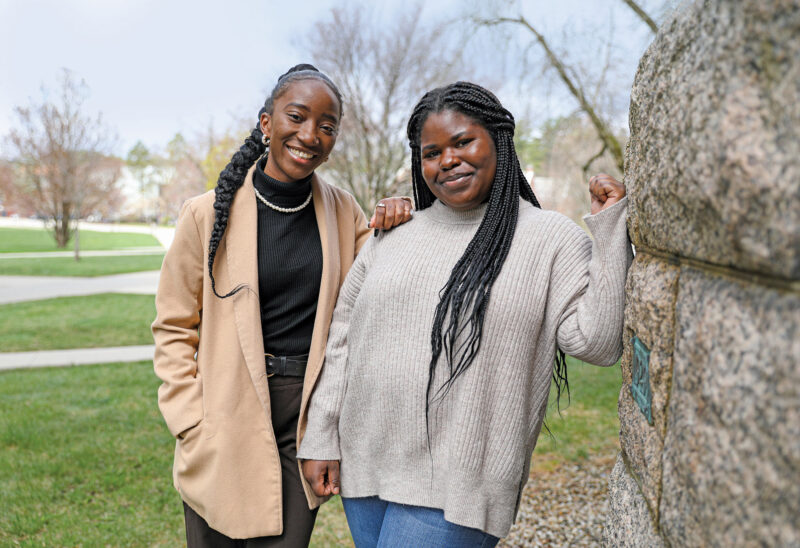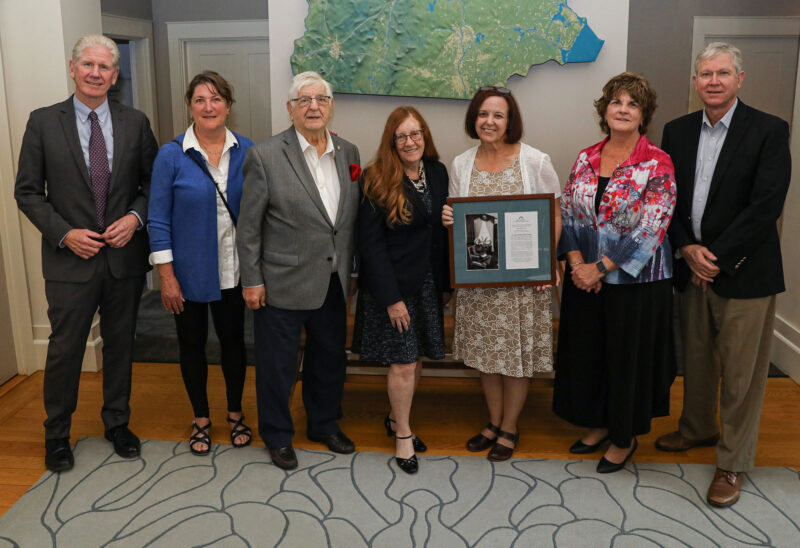Lois Roy Dickerman was always ready to greet whatever adventure was around the next corner. She was the baby of a large, Irish-American family, one of the smartest students at her New York business school who always sang along with the radio and once danced with the Rockettes. She travelled the world and, well into her 90s, climbed aboard a hot-air balloon in a fur-trimmed red coat for the sheer delight of it. She adored jelly donuts (she always asked for an extra cup of jelly on the side) and would be as thrilled with that pastry as she would with a trip to Paris. She knew poverty, and she knew sorrow — and she responded with acceptance, and openness and joy.
That in-the-moment quality, that consistent choosing of joy, were her gifts.
When a friend or family member came to see her, she would light up, and clap her hands and exclaim, “Oooooh, come in!”
“Joyful is the one word I would use to describe her,” said her great-niece Joan Amanna. “I think that defines her better than ‘happy.’ A lot of people can be happy, but she was joyful. It came from within and poured right out of her.”
A charitable legacy
When Lois Roy Dickerman died at 103 in 2009, she left a considerable portion of her estate to establish the Lois Roy Dickerman Fund, a donor-advised fund at the New Hampshire Charitable Foundation.
From that fund, about $800,000 in grants goes out into New Hampshire communities every year.
When Meals on Wheels was forced to cut delivery down to four days a week, grants were made from Lois’ fund to reinstate five-day delivery. Her fund helps feed the hungry through the New Hampshire Food Bank. Lois’ legacy helped City Year New Hampshire expand its youth mentoring and education programs; helps vulnerable families become self-sufficient through the critical services of Families in Transition; helps boost girls’ confidence and leadership skills as they learn carpentry at Girls at Work. And much, much more.
The fund, along with a scholarship for nursing and vocational students that helps at least a dozen students each year, is positioned to support New Hampshire communities in perpetuity.
“She hated to see anyone unhappy or unfed.”– Ted RoyTweet This
A bright mind, an undauntable spirit
Lois Roy Dickerman grew up knowing hardship, and life dealt her a fair amount of sorrow.
The Healion family lived in a “railroad flat” in The Bronx — a string of connected, narrow rooms with a bathroom down the hall. Lois married young, and her first husband died very young. She married again, to a man who sold insurance, and they moved to Manchester. She never bellyached about leaving the bright lights of New York City, love them though she did. (And she never regaled anyone with details about the Rockettes — she would just giggle, shyly proud, when someone else brought that up.) She got her insurance brokers’ license, made a life in New Hampshire, and found joy where she was.
She was in her 50s when her second husband died. When she was introduced to Edward J. Roy, a Manchester real estate developer, both were smitten. They married, and took a honeymoon trip around the world.
“She made my father a very happy man,” Richard Roy recalled. When Ed Roy was developing new neighborhoods in the city, he named Lois Street and Healion Street both for his wife. Lois got her real estate license and worked with her husband. He was a native French speaker, so she learned to speak French.
“She was such a bright mind and she was always learning, and I think she probably was a really good partner to her husbands in their work,” Amanna said.
She never had children of her own, but established close bonds with her nieces, nephews, step-children and grandchildren.
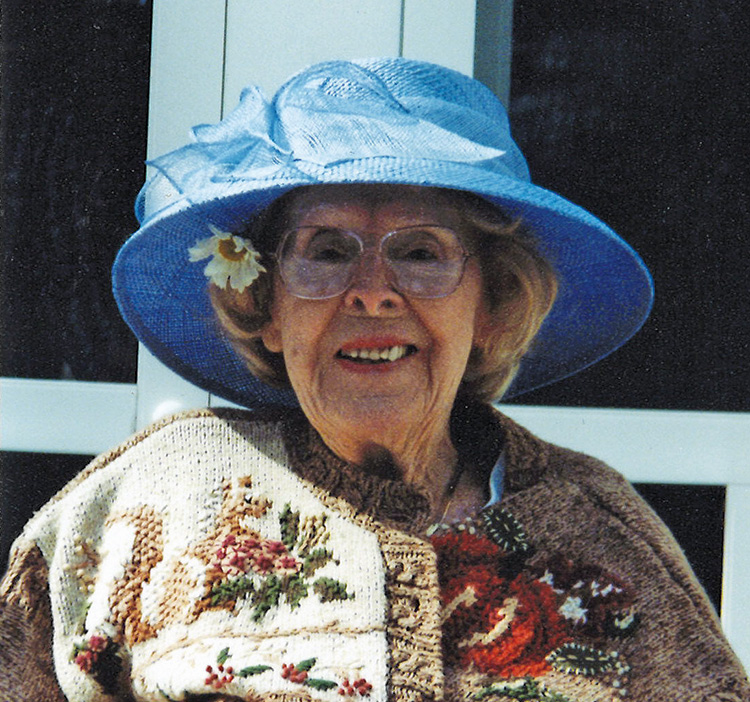
After Ed Roy died, Lois would marry again, to Dr. Frederick Dickerman. She never dropped “Roy” from her name.
Foundation helps fulfill legacy
During her lifetime, Lois had initially planned for a private foundation to fulfill her charitable legacy and those of Ed Roy and Fred Dickerman.
Her estate planning attorney, Anu Mullikin of Devine Millimet, suggested working through the Foundation instead.
“I pointed out to her that there was much more certainty that her wishes would be fulfilled,” Mullikin said. “That’s what the Charitable Foundation does. They have no personal horse in the race, they are regulated and there is oversight.”
And, Mullikin said, “You don’t have to have your attorney constantly involved to make sure things are going right. The Foundation does most of the legwork.”
Lois, Mullikin said “was savvy and she had good instincts. She didn’t just take my advice.” Lois met with Foundation staff over a period of years.
Lois had a complicated set of assets — including buildings, securities and other investments — that were liquidated to build her fund. She named Roy family members and longtime friend Art DeSaulnier as fund advisors.
Anne Phillips, the Foundation’s director of grantmaking, works with those advisors closely — suggesting funding opportunities, arranging visits to nonprofits, answering questions and providing direction.
“Without them, we wouldn’t know where to start or where to go,” Richard Roy said.
“It’s a wonderful feeling for us to know that we are making a big difference.”
Ted Roy, Richard’s son and another fund advisor, called Lois “Mémère.” To him, she was his grandmother, a woman who always smiled and wanted to take care of people less fortunate.
“She hated to see anyone unhappy or unfed,” Ted Roy said.
At the Boys and Girls Club in Laconia, children are fed supper five nights a week. That meal is possible because the Lois Roy Dickerman Fund covered a significant portion of the cost for a brand-new commercial kitchen, which allows the club, in partnership with the Food Bank, to feed nutritious dinners to kids in need.
There is a sign over the kitchen door: “Mémère’s Kitchen.” The act of feeding hungry kids would have brought Lois joy.
“She had a lot of sorrow, but I don’t think she dwelled on the sorrow,” said Amanna, her niece. “She dwelled on the joy. And through her fund, she is still bringing joy.”
To learn more about how you can leave a legacy for your community, contact Laura Rauscher, director of philanthropy, at 800-464-6641 ext. 274 or ywe@aups.bet.








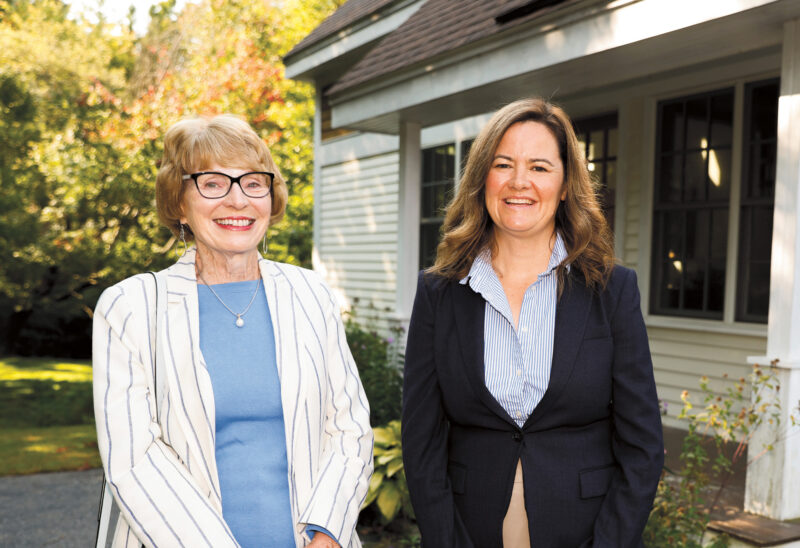

![Oluwakemi Olokunboyo of Dover received a McNabb scholarship to study nursing at Great Bay Community College [Photo by Cheryl Senter]](https://www.nhcf.org/wp-content/uploads/2024/05/Scholarship-Hero-800x548.jpg)
![Indrika Arnold, Senior Wealth Advisor, the Colony Group [Photo by Cheryl Senter]](https://www.nhcf.org/wp-content/uploads/2024/05/Indrika-Arnold-Hero-800x534.jpg)



![Charitable Foundation President Dick Ober [Photo by Cheryl Senter]](https://www.nhcf.org/wp-content/uploads/2023/12/dick-ober-purpose-fall-winter-2023-800x548.jpg)
